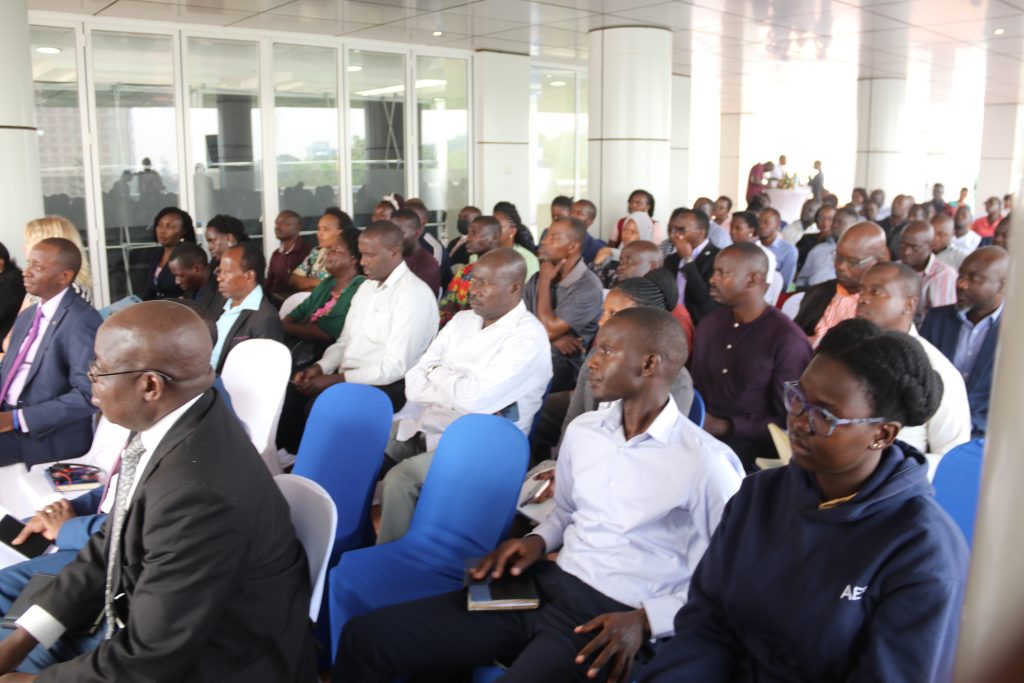Agriculture is one of the core sectors that Dfcu has committed to supporting and has put initiatives in place to de-risk agriculture. The bank has purposefully developed various Agri products, such as Agri-Asset Financing, loans for agricultural production, farmer group accounts, business loans, loan savings accounts, enterprise accounts and made them attractive and more affordable to small and medium enterprises, women entrepreneurs and investment clubs.
ADC, powered by DFCU Limited and the Rabo Foundation, has collaborated with GOPA Worldwide Consultants to implement Cohorts 2 and 3 of the Business Accelerator Programme (BAP) in accordance with the Enhancing the Competitiveness of Small and Medium Enterprises (ECOS) project, which is funded by the Deutsche Gesellschaft für Internationale Zusammenarbeit (GIZ).
Josephine Mukumbya, the Executive director of Agribusiness Development Center says “This is the second cohort to be selected for this acceleration programme. The business should have existed and have a product or service running. What we do is to enable them govern their enterprises better though financial management, getting reliable market information, exposure to compliance and quality systems that challenge most growing businesses.”
“We shall integrate key themes of gender and green growth for sustainability within the training modules, the outcome of which being enterprises developing strategies on the same as well as establishing key indicators to track women participation in SMEs leadership,” she adds.
The mandate of ADC to build capacity of agribusinesses to bankability and self-sufficiency for increased incomes and job creation is well aligned with the goal of the ECOS project, and the dfcu vision to transform lives and businesses through innovative solutions and empowering people, which contribute to the four key pillars and objectives of the National Financial Inclusion Strategy (NFIS), one of which is ‘Reduce Financial Exclusion and Access Barriers to Finance.’
“We have partnered with UNBS, Uganda Export Promotion Board and the goal of this partnership is to ensure we create more jobs and better working conditions through export promotion. The success of any training is implementation, if you learn and don’t implement, you’re not any different from people that aren’t here” says Jimmy Byaruhanga from the ECOS project, an implementing partner.
Dfcu bank has proved to be one of the biggest off-takers of the agriculture credit facility which is a partnership between the bank and government to provide financing to farmers at a subsidized price where 15% of the bank’s lending book is within the agricultural value chain”
“We are working with partners who provide guarantees, who help support and train farmers within the agriculture eco system to improve their capabilities to access funds and utilize their funds effectively. We are also aware of the challenges that come with financing the agricultural sector like unfavorable weather that results to low yield so we have extended our partnership to work with insurance providers to ensure the challenges faced in the agricultural sector,” says William Sekabembe Managing Director of DFCU.
ADC will address cohorts two and three with a multifaceted approach that includes training, mentorship, coaching, and technical assistance, with refined approaches based on assessments of the first cohort that was trained last year. The strategies will be used together to address the major barriers to accessing and using financial services for improved business operations, investment preparedness, and connections to capital for development and jobs.
The rate of population expansion continually outpaces the rate of job creation in Uganda today. Many youths especially young women, are forced to work in low-wage jobs with only a few managing to get high-wage jobs in agriculture.
The preceding makes a case for continued capacity development of enterprises, particularly agricultural enterprises, for bankability, growth, and thus job creation, which is precisely what the Agribusiness Development Centre (ADC) and its partners are doing by focusing on small and medium agribusinesses, 40% of which are led by women.
